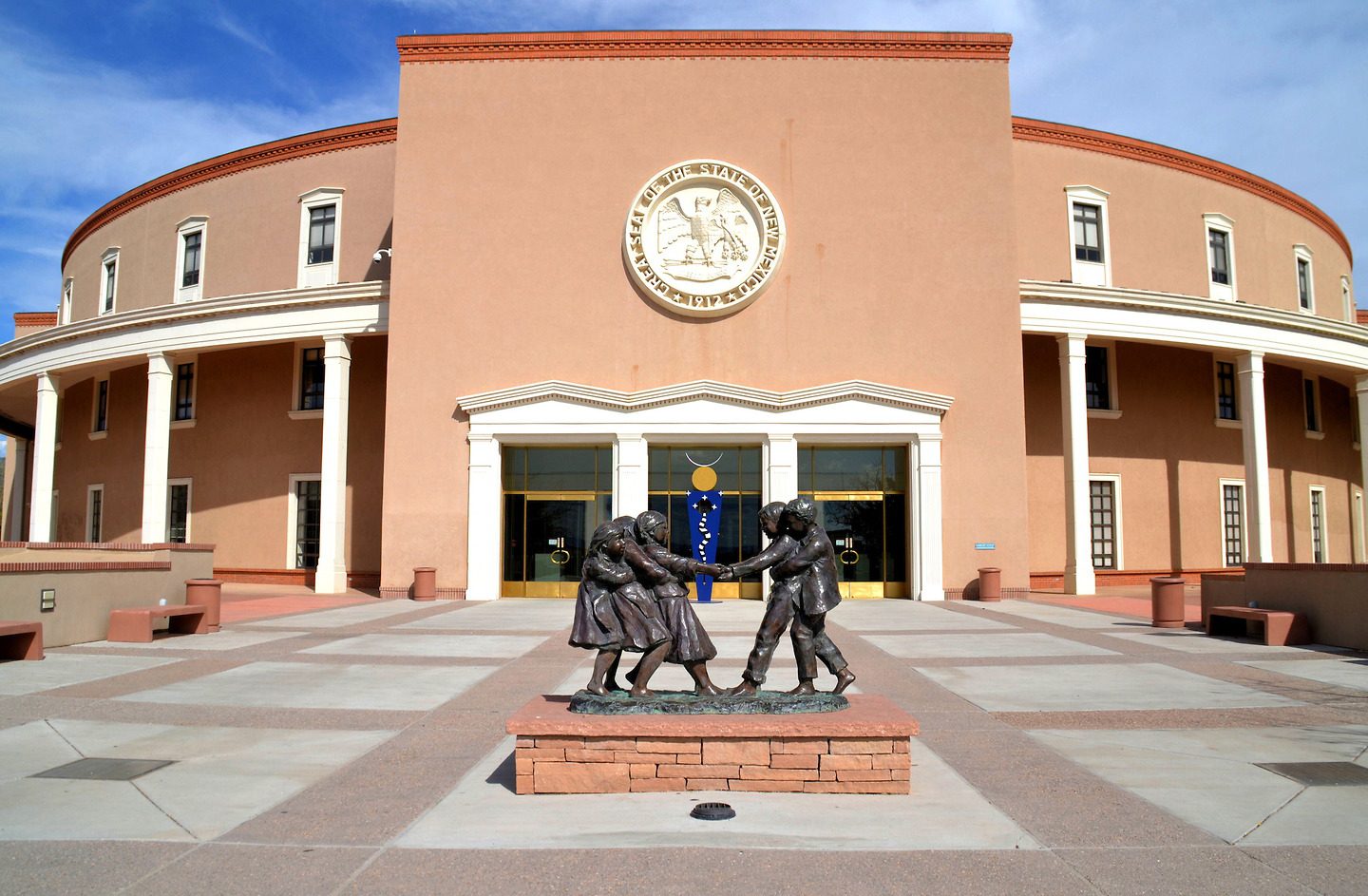Ethics watchdog issues report on payday loan industry lobbying

It has become a cycle of despair for low-income residents with poor credit scores: They take out a high-interest installment loan to tide them over in tough times and soon accumulate an unmanageable load.
They pay off old debt with new loans at rates of up 175 percent.
For years, state lawmakers have unsuccessfully tried to introduce legislation capping the interest rate for such loans at 36 percent. Their efforts have failed repeatedly. An attempt last year to forge a compromise — with a 99 percent cap on the smallest loans, of up to $1,100, and 36 percent on higher amounts — stalled in the House of Representatives.
The nonprofit New Mexico Ethics Watch released a new report this week on a study exploring the possible effects of the industry’s lobbying efforts — both money and messaging — on ensuring the cap isn’t lowered. What the study found, said Kathleen Sabo, executive director of Ethics Watch, is that lobbyists’ arguments in opposition to a drop in the interest rate cap have been even “more effective” than campaign donations when it comes to influencing lawmakers.
“This is an issue that has been bedeviling vulnerable New Mexicans for quite some time,” Sabo said.
The report says so-called storefront lenders have contributed at least $450,000 to New Mexico legislators’ election campaigns since 2005. But the study did not find “major amounts of campaign contributions to lawmakers from small-loan companies that you find from other industries.”
Campaign contributions from the industry to 58 state legislators in the 2020 election cycle totaled $140,000, with most going to Democrats.
Rep. Patti Lundstrom, D-Gallup, and former state Sen. Clemente Sanchez, a Democrat from Grants, received the highest contributions from the industry, $7,500 each, the report said.
It lists several high-profile lobbyists who represent storefront loan companies, including attorney Daniel Najjar, former state Rep. Raymond Sanchez and Vanessa Alarid, the wife of state Rep. Moe Maestas, an Albuquerque Democrat.
Efforts to reach Najjar, Sanchez and Alarid for comment were unsuccessful.
One key argument against the interest rate cap on storefront loans, Sabo said, is that people who rely on small lenders would be left “in the lurch, with no money” if the high-interest loans were not available.
The report disputes that. In states where such businesses have shut down — potentially because of interest rate caps — “people will return to getting money in what may be seen as traditional ways: working extra hours, selling possessions, borrowing from friends and family,” the report says. And the number people who turned instead to high-interest online loan companies “rose only incrementally.”
Ethics Watch encountered a challenge in determining the amount of campaign donations to lawmakers from lobbyists for storefront lenders, the report says.
State guidelines for lobbyist disclosure reports allow them to list contributions on behalf of several clients or under their own names or the names of their firms. Some donations from storefront lenders might therefore be unclear.
The Ethics Watch report comes as Democratic lawmakers in the House and Senate are again introducing legislation to cap interest rates for small lenders at 36 percent.
Rep. Patricia Roybal-Caballero of Albuquerque filed House Bill 78, while Sens. Bill Soules of Las Cruces and Katy Duhigg of Albuquerque filed similar legislation Thursday that had not yet been assigned a number.
Soules and Duhigg filed similar legislation in 2021. Though the Senate approved the bill, Lundstrom sponsored an amendment in the House to set the interest rate cap at 99 percent for loans of $1,100 or less and 36 percent for loans between $1,100 and $10,000.
The bill died as time ran out in the session.
Roybal-Caballero did not respond to requests seeking comment Thursday.
Duhigg wrote in an email Thursday the bill she and Soules introduced is the same as the one they sponsored last year.
“We’ve tried many times before and it’s important that we keep trying until the practice of predatory lending in New Mexico is gone for good,” she wrote.
Sabo said she plans to reach out to the Governor’s Office on Friday to ask for her support in getting the bill heard this year.
Nora Meyers Sackett, a spokeswoman for the governor, wrote in an email Thursday, “We absolutely agree that it’s an important issue that need to be addressed, as evidenced by the governor’s focus on the issue in the last 60-day session.”
But, Sackett added, “with such a weighty agenda to be addressed in just 30 days … we are not willing to compromise the importance of the matter by adding it to the agenda without a good-faith consensus between stakeholders that will result in substantive action and protections for New Mexicans. If these sponsors have identified such a consensus, we would be glad to hear of it and would evaluate the situation from that point.”
Soules said he and Duhigg are talking with House leaders to see if they can forge an agreement on the 36 percent rate cap. So far, he said, “there is no kind of commitment” on the deal, but he intends to keep working on it.
Many local storefront lenders are affiliated with national corporations, and much of the money they collect goes out of state.
“And it’s low-income people, especially those who are not sophisticated in the world of finance, who are targeted by the small-loan industry with promises of ‘no credit checks’ and ‘cash within 30 minutes,’ ” the Ethics Watch report says.
“Native Americans in particular are targeted by these businesses,” the report says, adding in Gallup, a city of about 22,000 people that’s considered the commercial hub of the Navajo Nation, there are 40 small-loan offices.
This article was originally posted on Ethics watchdog issues report on payday loan industry lobbying



